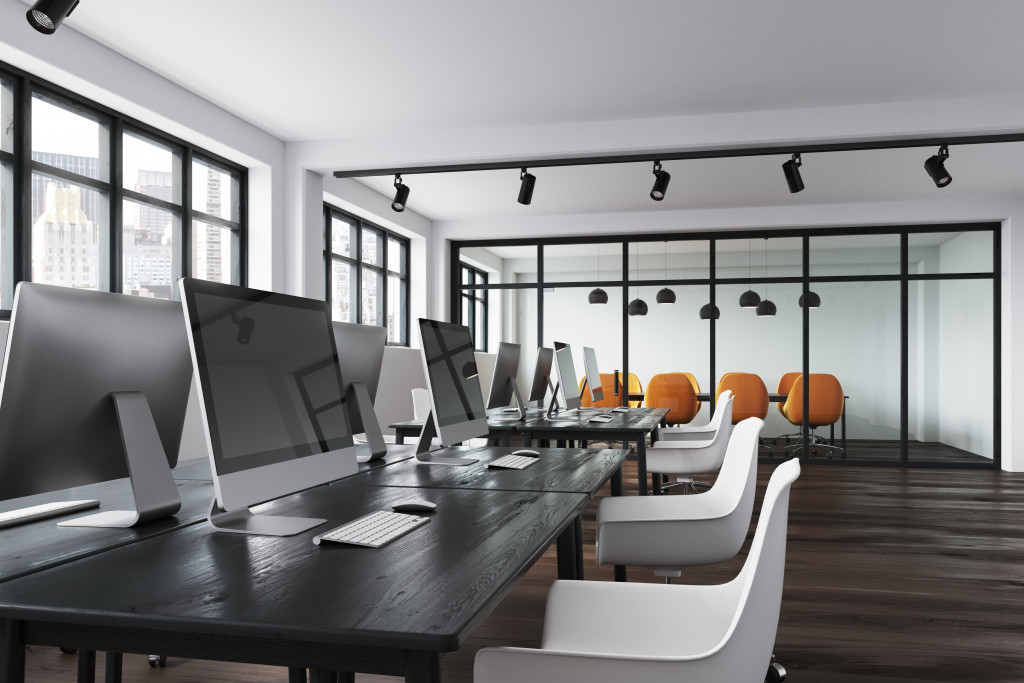Technology has evolved from machinery into a way of living for many people. As more individuals work from home, it may seem as though everything can and should be done online. Telecommunications can pave a promising future for those yearning for a work-life balance. So, with the potential of virtual education, work, and socializing platforms, an uninterruptible power supply (UPS) for data centres is important to sustain a digital world for everyone using the Internet.
However, the growing need for online communication questioned the purpose of physical locations such as schools and offices. On the contrary, entrepreneurs involved in the technology industry need concrete areas. With this, they can place their servers that hold information, process raw materials into new gadgets, and for their teams to collaborate in person. This means they have to invest in infrastructure for storage, manufacturing, and communication.
1. Information Storage
Whenever someone uses the Internet and willingly shares personal details about themselves, or when a programmer creates an online platform for everyone else to use, there are physical locations where all this information has to be stored. After all, it is a system of machines that work together to stay connected and keep the websites running. Expansive buildings hold various devices that record and store some facts or instructions that allow you to place an order online or communicate with others on social media.
The locations that house servers tend to look as large as a manufacturing facility; sometimes, they are even bigger. But if there are not a lot of users, a home can handle the heat from the people trying to access the website. In case there is an uptick in the activity on the platform, it can overwork some devices, and there might be some overheating. So maintaining adequate cooling systems in the buildings that hold servers is also essential.
2. Manufacturing
Entrepreneurs still need factories to process the devices they need for their operations or the gadgets they would like to sell to their customers. Either way, the land is necessary to create an infrastructure that can accommodate the various methods of manufacturing devices. Each company usually has a specific way of arranging or assembling materials to produce one item, so sometimes using an existing building is not an option. It depends mainly on the business owner if they are willing or able to put up the capital to build a new plant.
Some companies prefer to outsource labour and the collection of raw materials because it is a lot cheaper abroad. Certain countries provide these services at competitive rates that make it difficult for local manufacturers to match them in the market. Instead, local producers advertise and pride themselves on producing gadgets in their country as a plea to strengthen their industry.
The challenge for these kinds of enterprises is dealing with the scarcity of raw materials that can be obtained from the locations within the proximity of their factory. They will have to factor in shipping costs if they decide to eventually source their materials from abroad.
3. Offices

Although many people work from home, collaborating in person is still a preferred way to brainstorm and work on urgent, real-time problems. When people need to be trained for troubleshooting or if there are pertinent issues that have to be resolved as soon as possible, meeting in person allows them to overcome the obstacles created by a digital workspace.
For instance, some communication can get lost through the filters of the screen, and gesticulations or the nuances of the conversation are not as apparent as they would be if the dialogue were conducted in person. Therefore, meeting face to face may be the key to assuring an efficient means of communicating with co-workers and employers.
At the same time, some companies are concerned with the lack of privacy that comes with remote work. People prefer to have meetings behind closed doors. This is for fear of being infiltrated by hackers or any other means of spreading confidential information that is only meant for employees. For these reasons, hybrid work is still a preferred option among some employees and supervisors. Offices remain a relevant conversation in the necessities for getting work done.
The digital economy may seem to be heading toward a more virtual world, but physical locations allow these online systems to function. Without land, entrepreneurs in the tech industry will be unable to support website functionality, manufacture devices for the operations of these platforms, and collaborate to solve problems that affect users around the world.
